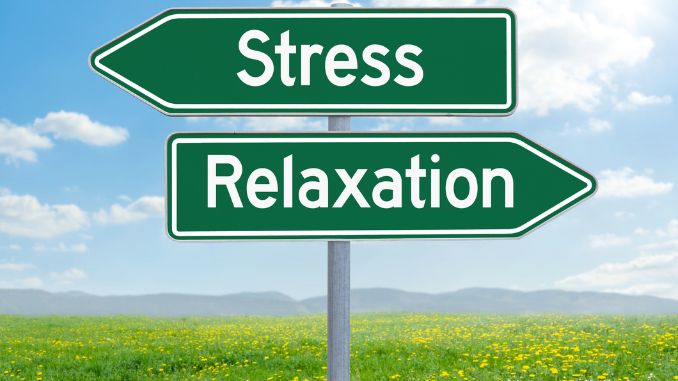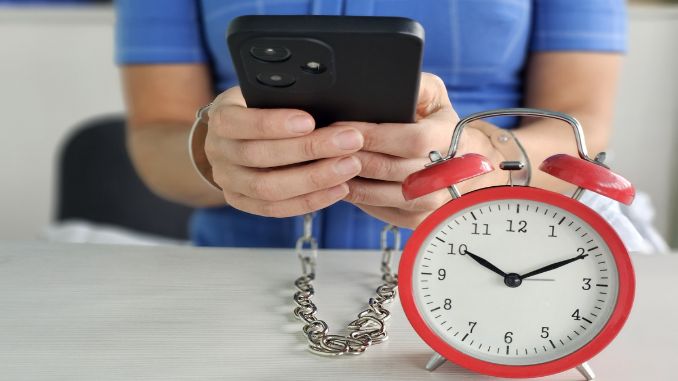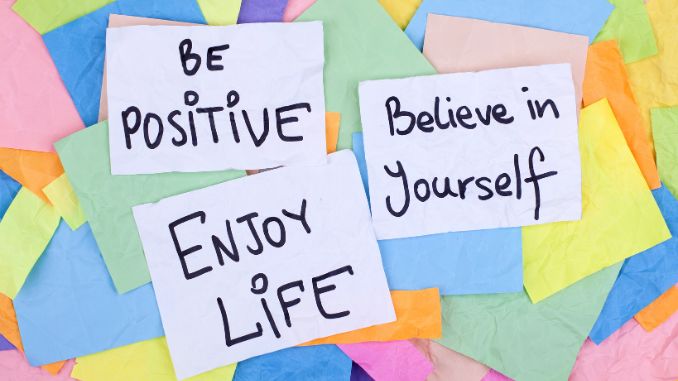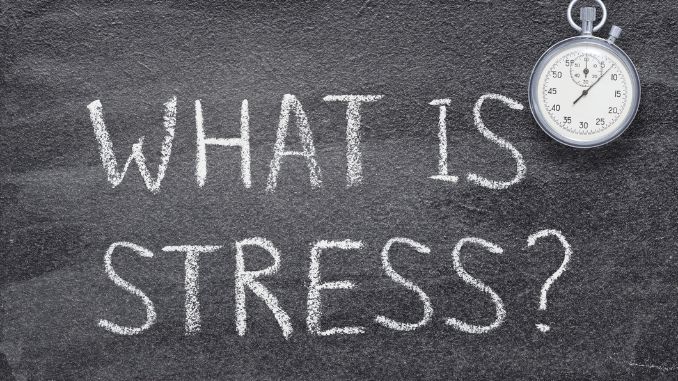Stress can affect your mental and physical health, so find healthy ways to cope. Meditation, deep breathing, and leisure time in nature are great ways to relax and de-stress, which are essential steps in how to be stress-free and happy
It’s normal to have off days. What’s important is not to let bad days overwhelm us. We can overcome them.
Stress is very common among young people today. Many feel overwhelmed by school, relationships, money problems, and worries about their future. Life can feel fast and stressful.
Moreover, finding ways to reduce stress and increase happiness is important. Too much stress can make you feel tired, sad, or even sick. Small changes can make a big difference in feeling better.
Stress affects young people in many ways, from physical health to emotional well-being. Managing stress is essential for maintaining a positive mindset and protecting your mental health.

Here are 25 practical tips to help you focus on stress management and lead a happier, calmer life, how to be stress-free and happy:
1. Practice Deep Breathing
Take slow, deep breaths for a few minutes. Moreover, deep breathing calms your mind, helps manage stress, and improves focus.
2. Try Mindfulness or Meditation
Stress affects your heart, blood pressure, and how well your lungs work. Additionally, regular meditation can improve these functions, making your body feel healthier and more relaxed. (Chen, J. T., & Leu, S.-Y. (1998).
Finite element analysis, design, and experiment on solid propellant motors with a stress reliever. Finite Elements in Analysis and Design, 29(2), 75–86. https://doi.org/10.1016/S0168-874X(98)00015-8)
Sit quietly and focus on your breathing or surroundings. Moreover, mindfulness reduces anxiety and keeps your mental health in check.
3. Exercise Regularly

Simple exercises like walking or stretching lower stress hormones, boost your energy and improve mental clarity.
4. Get Enough Sleep
Sleep 7–9 hours each night. Additionally, a good night’s rest recharges your body and supports stress management.
5. Eat Healthy Foods
Include fresh fruits, vegetables, and whole grains in your diet. Moreover, heating builds resilience against how stress affects your body.
6. Stay Hydrated
Drink plenty of water throughout the day. Additionally, staying hydrated keeps your brain sharp and helps reduce stress.
7. Listen to Music

Play calming or upbeat music to relax, lift your mood, and support your mental well-being.
Karl Peter shared in a forum his thoughts…
“I felt like I was immersed in music. My soul was cleansed, and all my worries disappeared. I didn’t expect that dealing with stress could be so simple.
I’m not sure if this will work for everyone, but hopefully, someone who feels stressed can give it a try to clear their mind.
Additionally, there is therapy available for depression and mood, which might help those in need.”
8. Spend Time in Nature

Being in nature—walking in a park or sitting outdoors—soothes your mind and reduces the negative effects of stress.
9. Laugh More
Watch a funny movie or laugh with friends. Additionally, laughter is a natural stress reliever and a boost for mental health.
10. Declutter Your Space
Organize your room or desk. Moreover, a clean, clutter-free space helps you feel calm and in control.
11. Journal Your Thoughts

Write down your worries, feelings, or things you’re grateful for. Journaling is a powerful stress management tool.
12. Take Breaks
Step away from work or school for short breaks. Moreover, this helps recharge your energy and reduces how stress affects productivity.
13. Practice Gratitude

Moreover, one way to stay positive is to appreciate the good things in our lives. Even when facing challenges, we can still find things to be thankful for. Additionally, we could have a great group of friends, or we can help others even when we’re struggling. Surround yourself also with positive people.
Research has shown that people with positive social relationships are happier and healthier than those without. So, spend time with friends and family members who make you feel good. Recognizing the good things in our lives can help us to keep perspective and maintain a positive outlook.
Moreover, it’s also important to take care of ourselves physically and mentally. Additionally, take care of your body. Eat healthy foods, exercise regularly, and get enough sleep. Taking care of your body will help you feel your best and be your best. outlook
Furthermore, when we’re feeling our best, it’s easier to stay positive. Moreover, exercise, healthy eating, and spending time outdoors can all help to improve our mood and outlook on life. Embracing these habits is key to how to be stress-free and happy. And when we’re taking care of ourselves, we’re better able to handle whatever challenges come our way.
14. Connect with Loved Ones
Spend time with family or friends who uplift you. Additionally, strong relationships are key for mental health and managing stress.
15. Limit Social Media

Take breaks from scrolling. Moreover, too much social media can overwhelm your mind and increase stress.
16. Try Aromatherapy
Use essential oils like lavender to create a calming atmosphere. Moreover, Aromatherapy supports stress management and relaxation.
17. Engage in a Hobby
Spend time doing something you love, like painting or gardening. Moreover, hobbies boost happiness and reduce stress..
18. Learn to Say No
Set boundaries and don’t take on more than you can handle. Additionally, this is an important step in managing stress.
19. Avoid Caffeine Overload

Cut back on coffee or energy drinks. Too much caffeine can worsen anxiety and stress effects on your body.
20. Focus on One Task at a Time
Multitasking can be overwhelming. Focus on one task to feel more productive and less stressed.
21. Practice Positive Self-Talk
Be kind to yourself. Moreover, replace negative thoughts with encouraging ones, like, “I can handle this.”
22. Take a Warm Bath
A warm bath relaxes your muscles and helps your mind let go of stress.
23. Seek Help When Needed
Ta;k to a trusted, friend, family member, or counselor. Moreover, professional help can make stress management easier and improve mental health.
24. Positive and Healthy Life

A positive and healthy life is something that we should all aspire to have. Moreover, there are countless benefits to living a positive and healthy life, including increased happiness, improved mental and physical health, and even a longer lifespan. But how can we achieve a positive and healthy life?
Moreover, in this busy world, it is hard for us to stay positive with all the things that are happening around us. Moreover, problems with work, relationships, financial stability, and health concerns can all weigh us down. But it is important to remember that we can control our happiness. Additionally, we can focus on the positive, even when things are tough.
25. New Year! New You!
The desire to improve oneself is a common resolution at the beginning of each year. However, can we actually make it happen in 2025? Is this year the perfect opportunity to alter your life and live a healthier and happier existence?
Moreover, it’s not difficult to live a more constructive and healthy existence. It simply requires a few basic steps to accomplish our goals. And it does not have to be as difficult or challenging as other people might have suggested. It is a fact that living a healthy life requires effort, but the advantages are well worth it. Additionally, you’ll never desire to return to your previous habits once you see the results after following these suggestions!
Furthermore, when the new year begins, everyone thinks of it as a time to start afresh. Additionally, a new year is a time to let go of the past and face a brand-new future. You may make your New Year goal anything you want it to be. how to be stress-free and happy is all about setting yourself up for success and pursuing your goals. There is no other thing more important than setting goals for yourself.
How did the Idea of a New Year’s Resolution Started?

New Year’s resolutions are a tradition traced back to Ancient Rome. Additionally, at the start of each new year, the Romans would sacrifice two sheep and one bull to Janus, the two-faced god of beginnings and endings.
After sacrificing the animals, they would gather with family and friends to the feast, sing songs, and make promises for the coming year. Moreover, these promises were called “Janus promises” or “resolutions” and were made to Janus.
The Romans may have been the first to use January 1 as the start of a new year, but New Year’s celebrations date back even further than that. Evidence suggests that people have made resolutions on New Year’s Day for more than 4,000 years.
First, the setting gives you a specific goal to aim for. This can also help you stay motivated and on track. Second, telling others about your resolution can give you some much-The word ‘resolution’ comes from the Latin ‘resolver,’ which means ‘to loosen or untie’ (as in undoing a knot).
For those living in Christendom, however, resolutions were first encouraged in 589 AD by Pope Gregory I, who declared February 2nd as ‘dry wit nwythnos’ – which means ‘new year’s not day’ – due to its significance being equal to January 1st when Christians celebrate the birth of Jesus Christ. However, February 2nd has pagan associations as well, as it coincides.
Benefits of having a New Year’s Resolution and following it

Making a New year’s resolution is a great way to start the year on the right foot. It’s a chance to reflect on the year gone by and set some goals for the year ahead. And research has shown that people who make New Year’s resolutions are more likely to achieve their goals than those who don’t. There are a few reasons for this.
It’s also a good idea to set reminders for yourself so that you don’t forget. First, the setting gives you a specific goal to aim for. Additionally, this can also help you stay motivated and on track. Second, telling others about your resolution can give you some much-needed accountability.
And finally, reflecting on your progress at the end of the year can help you stay on track and adjust as needed. Incorporating New Year’s resolutions into your life is a powerful step toward how to be stress-free and happy. So, if you want to make positive changes in your life, consider making a New Year’s resolution. It could be the best decision you ever make!
Below are amazing tips if you’re trying to stay on track this coming year!

- Plan Your Day the Night Before: Plan your day the night before by creating a schedule, prioritizing tasks, and setting reminders to stay focused and prepared for any unexpected events. Additionally, this helps you avoid distractions, stay on track, and reduce morning stress.
- Getting Up Early: Additionally, waking up early can enhance productivity, reduce stress, and improve mental and physical health, contributing to a stress-free and happy life. Gradually setting your alarm earlier can help you adopt this beneficial morning routine.
- Make your bed every morning: Moreover, making your bed each morning fosters self-respect, good habits, and organization, contributing to how to be stress-free and happy and setting you up for success.
- Start the Day with Water and Vitamin C: Starting your day with water and vitamin C enhances health and appearance by promoting collagen production for healthy skin, hair, and nails.
- Meditate for 10 minutes every day: Meditation is a powerful tool for stress relief and relaxation, enhancing mental and physical well-being. Moreover, just 10 minutes daily can reduce stress, anxiety, and depression, improve sleep and focus, and contribute to how to be stress-free and happy.
- Walk to Work or Commute: Moreover, walking to work or commuting on foot is a low-impact exercise that improves physical and mental health, reduces stress, and enhances mood, contributing to how to be stress-free and happy.
- Add More Greens to Your Diet: Adding more greens to your diet provides essential vitamins, fiber, and antioxidants, aiding digestion, boosting immunity, and supporting brain health, while also promoting weight loss.
- Exercise for 30 Minutes a Day: Meditating daily, walking to work, adding greens to your diet, and exercising for 30 minutes each day are simple yet effective ways to improve physical and mental health, reduce stress, and contribute to how to be stress-free and happy. Moreover, these habits enhance cardiovascular health, boost immunity, and support overall well-being, helping you achieve how to be stress-free and happy.
- Set Your Intention & Stay Positive: To be stress-free and happy, setting a daily intention and maintaining a positive attitude are essential; focus on what you want to achieve and surround yourself with positivity. Additionally, keeping your intention in mind helps you stay on track and positive, regardless of challenges.
- Be Grateful Everyday: Moreover, practicing daily gratitude for the good things in your life is a key aspect of how to be stress-free and happy, as it improves physical health, mental well-being, resilience, and strengthens relationships by making others feel valued. Additionally, taking a moment to appreciate the good, no matter how small, can make you and those around you feel good.
What is Stress and How Can it Affect Your Everyday Life?

Stress happens when something challenges the body’s balance, making it feel off or threatened. The stress system tries to fix this balance by sending out special hormones from the brain and other organs.
- The main hormones involved are corticotropin-releasing hormone (from the brain) and norepinephrine (from the brainstem).
- These hormones affect different parts of the body, such as:
a.) The brain’s reward, fear, and sleep areas.
b.) Systems like the immune system, digestion, and heart.
For the body to feel good, the stress system needs to be in balance. If the stress system is too strong or too weak, it can cause problems like mood issues, and health problems, and affect growth. Stress is a big part of both mental and physical health issues.
Causes of Stress Among Youth
- Academic Pressure
- Exams, heavy workload, and fear of failure.
- Overcrowded classes and lack of resources.
- Financial Struggles
- Limited income or lack of jobs.
- Pressure to afford personal items and education costs.
- Relationship Issues
- Difficulty making or maintaining friendships.
- Romantic relationship problems and family conflicts.
- Career Anxiety
- Fear of not finding a job.
- Uncertainty about future career paths.
- Psychological Stress
- Emotional instability during adolescence.
- Overuse of social media leads to isolation [2].
- Time Management Problems
- Struggling to balance academic, family, and personal time.
- Procrastination causes last-minute stress.
Takeaway:
The most significant component of a successful new year’s resolution is the quantity of time and effort it takes. It’s up to you what your new year’s resolution will be. More than anything else, setting goals and working towards them is the most significant aspect of life.
Moreover, if we want to accomplish our life’s goals, we must set our minds to doing so. We must set our goals down on paper and then take action to achieve them and follow them. If we do not follow and accomplish these goals, everything in this article will remain a tip.
Our mind plays a very important role in accomplishing our goals of living a positive and healthy life because the mind is one of the most powerful tools; it is responsible for the quality of our lives and the amount of disease we contract.
If you have an unhealthy mind, it will have an adverse impact on your health and life in general. You can alter your lifestyle by making only a few simple changes. Small tweaks can have a significant impact on your health and well-being.

Frequently Asked Questions
How to make yourself happier?
- Focus on the good things in your life.
- Spend time doing things you enjoy, like hobbies or being with friends.
- Take care of your body by eating well, exercising, and getting enough sleep.
- Practice gratitude by thinking about what you’re thankful for each day.
How can I stay stress-free from work?
“MrsAshleyMarie shared in a forum her thoughts on destressing after work.
She mentioned that she has struggled with leaving work at work before and reassured others that they are not alone. She believes that taking time to relax is one of the most helpful ways to manage stress. Many people find relief through meditation, going for walks, or taking a bath. For her, keeping her mind engaged in something enjoyable works best.
She shared that reading a book helps her focus on something else without making herself feel more stressed or tired. MrsAshleyMarie encouraged others to try new activities to help relieve stress after work. What’s something that helps you unwind at the end of the day?
- Take breaks when you feel overwhelmed.
- Try deep breathing, meditation, or yoga to relax your mind.
- Keep a simple routine and avoid taking on too many tasks.
- Surround yourself with supportive and positive people.
How can I stay calm and happy?
- Stay present by focusing on what’s happening now, not worrying about the future.
- Avoid things that bring negativity, like too much social media or toxic relationships.
- Learn to let go of things you can’t control.
- Practice self-care, whether that’s relaxing with a book, exercising, or just resting.
Why can’t I relax and enjoy life?
- You might be overthinking or putting too much pressure on yourself.
- Stress or unresolved worries can make it hard to relax.
- Try setting small goals, taking breaks, or talking to someone you trust about your feelings.
- Sometimes, it’s okay to seek help from a therapist if you feel stuck.

Rick Kaselj MS, is a leading kinesiologist and injury specialist as well as co-creator of the best-selling Unlock Your Hip Flexors program. Rick creates exercise programs that help people heal injuries and eliminate pain, so they can go back to living a full, active, healthy life.



